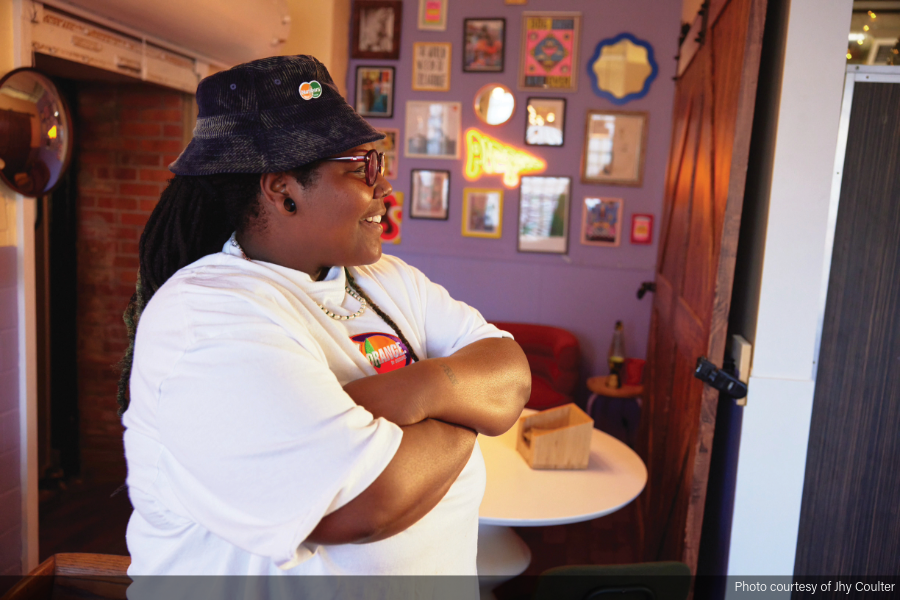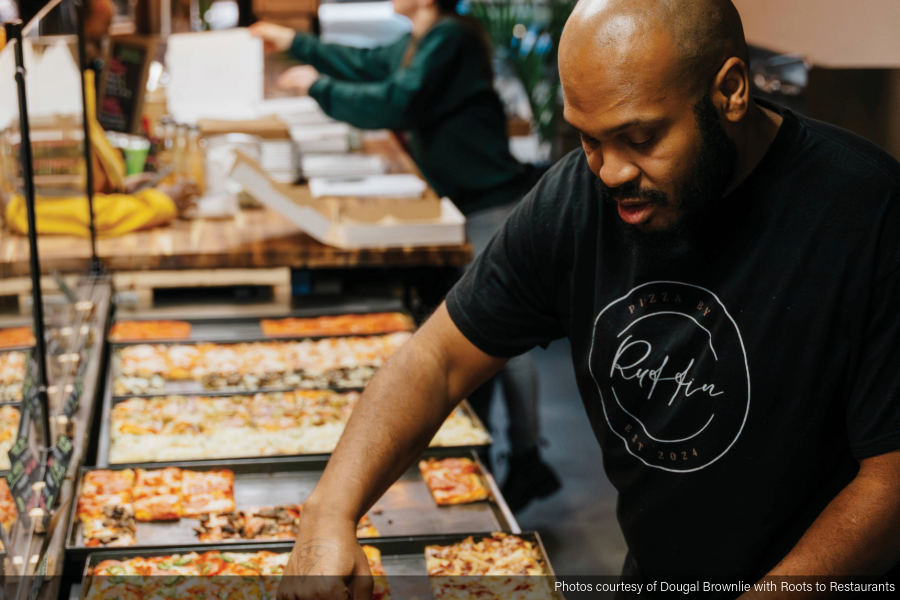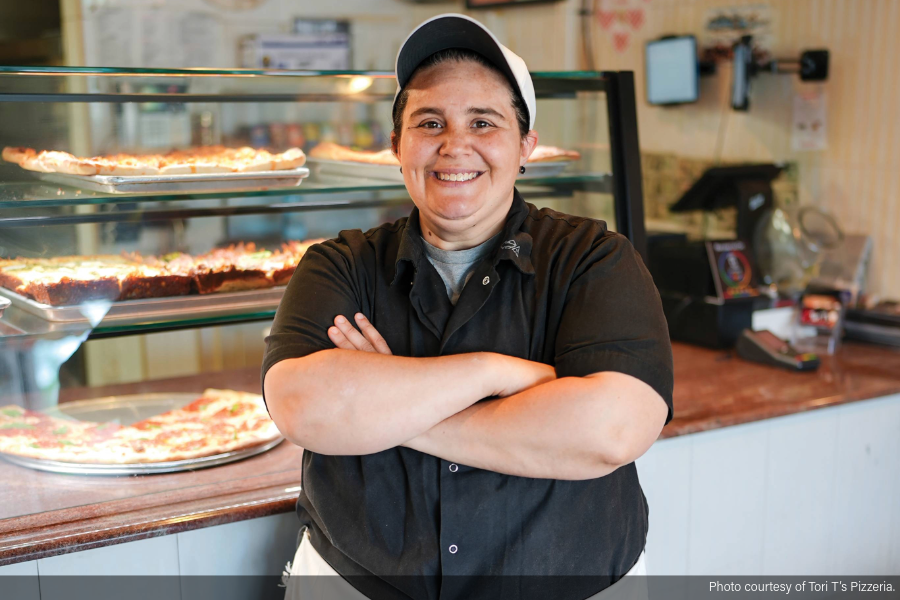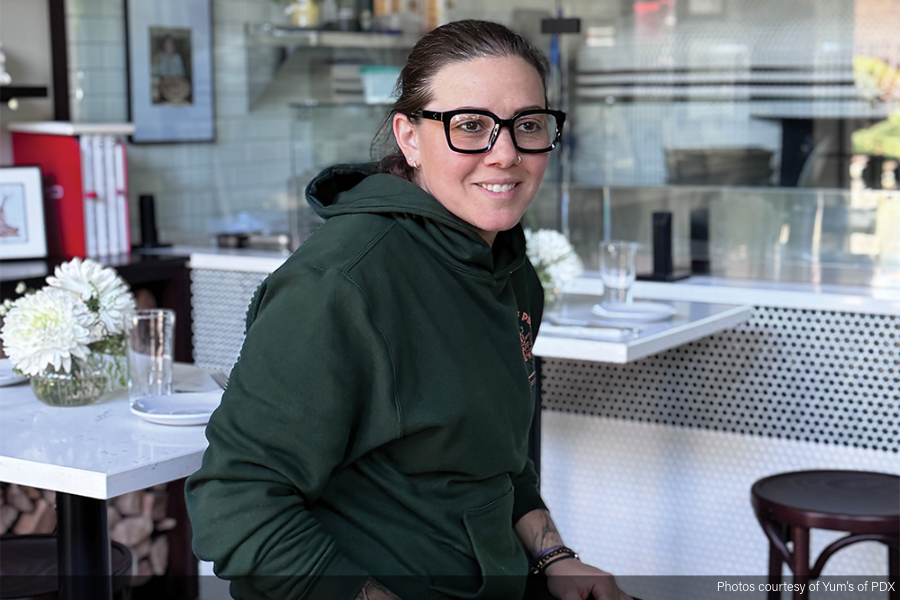Build your pizza business through SEO best practices.
Recently, a pizzeria operator reached out to us because his pizzeria wasn’t appearing in Google search results or on Google Maps, and the lack of online presence was hurting his business. While he was able to fix the issue, it is a reminder of just how much local search has become so ingrained into our culture. If your rankings on search and review sites slip, you will notice it in your bottom line.
I reached out to a foremost expert in the area to drill down an understanding of what’s happening with local search and the role you play in its results. Mike Blumenthal, co-founder and analyst of Near Media, has 20 years of local search and local marketing experience, as well as researching and reporting on reviews, local search and reputation.
When we talk about local search, Google is a majority of the focus. “Right now, that digital world that sends a lot of leads is primarily Google,” Blumenthal says. “We do see that changing over the next five years, but for now, Google has 90 percent market share and, in the local space, they have the best data set, and so people rely on them.”
Blumenthal encourages businesses to not look at search in terms of ranking specifically.
“Ranking is a sort of a false god,” he says. “It’s about visibility. It’s about engagement. It’s about brand understanding, and Google essentially in local SEO (search engine optimization) – unlike in traditional SEO – it’s about the entity that Google understands you to be.”
Search engine optimization is constantly evolving. It’s a multifaceted concept, and Blumenthal suggests you look past traditional SEO strategies such as loading keywords and links. “In traditional SEO, you worried about page visibility, and so you had to get links to that page,” he says. “Well, in entity SEO, you worry about brand visibility and getting that brand known so that the more people search for the brand, the more they engage with your brand, the higher it will rank. So, it’s a fundamentally different project than traditional SEO, even though most SEOs don’t understand that, and they sell sort of old school, get citations, get links.
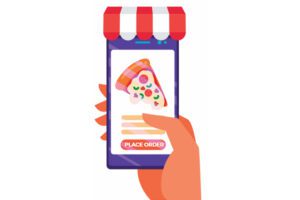 “It’s about your brand, the strength of your entity,” he continues. “Now, when I talk about brands, Google likes to see a mix of brand queries and engagement in relationship, to show you more for keyword queries. There’s this reinforcing loop between brand and the entity where Google is looking for real-world understanding that people like this brand and look for this brand in relationship to others in your field.”
“It’s about your brand, the strength of your entity,” he continues. “Now, when I talk about brands, Google likes to see a mix of brand queries and engagement in relationship, to show you more for keyword queries. There’s this reinforcing loop between brand and the entity where Google is looking for real-world understanding that people like this brand and look for this brand in relationship to others in your field.”
Your first priority is to make sure your search business page on Google and other search engines is 100 percent complete. “I think you need to fill in all the little details of Google, but particularly in your business, the menu. The menu should be all the details that Google allows, which is photographs, pricing details, etc.,” he says. Furthermore, keep the information up to date. Set time in your planner or checklist to stay on top of this important task.
Go beyond basic information. “If you’re a woman-owned business or a veteran-owned business, Google looks for those details. And if somebody’s looking for a woman-owned pizza parlor, you will show up,” Blumenthal says. “If somebody’s looking for a specific menu item, and you have it there, you’ll show up.”
Facebook, Yelp, Google, Tripadvisor And Zagat
Review sites play a vital role in your business. “Reviews are critically important as a first-level engagement,” Blumenthal says. “People don’t really read the reviews that carefully. They look at them as a mnemonic to indicate quality, and so they’re looking for 4.5 stars up. They’re looking for review quantity. Photographs are incredibly important, and it’s not just important to have good ones. It’s important to have good ones updated that are engaging to people.”
Through his work, Blumenthal found that replacing stock photos or bad photos with great photographs increased engagement on websites and Google, which in turn, increased Google rankings and conversions on the websites.
With Google’s new Maps chat AI, users can ask open-ended questions, and this is where review sites can help or hurt a business. “When they ask open-ended questions, Google is going to answer them, but sometimes they’re going to ask hard questions, like, ‘What does the broader internet say about this business, not just Google?’ And they’re going to pull in reviews from all the other sites, TripAdvisor and Facebook. So, if your business doesn’t look good there as well, Google’s going to say, ’Well, the good thing is this, but the bad things are said here, here and here.”
Getting Seen On Google
Next, your website is a key to your visibility. “It’s important that you have a website that shows and tells all the things you do,” Blumenthal says. “You have to start thinking of your website as a data feed to Google. This is where they learn about you. Google only has very limited number of categories, and so maybe your category is pizza restaurant, but maybe you are particularly good at calzones or burrata or something, and those types of things Google learns from your website. So, it’s important to have a website with a solid home page that links to your primary products and services.” He suggests that each major product has a dedicated page.
It’s not just having the information on the site. How it is presented matters. “It’s important that the website has meaningful title tags and meaningful user focused content,” he says. “Now this isn’t keywords, because Google doesn’t work on keywords anymore. They work on sort of semantic word clouds. You do this using a title tag and content that reinforces it.”
There is no magic formula to be No. 1 on a Google search. “It’s not about gaming the system,” Blumenthal says. “It’s about building a great brand and having great pizza that people like and write good reviews about. If you can encourage them, when you’re in your business, to take a picture … and post, that’s another form of engagement, and it shows up in the reviews, and Google likes that sort of stuff.”
Denise Greer is Executive Editor at Pizza Today.



